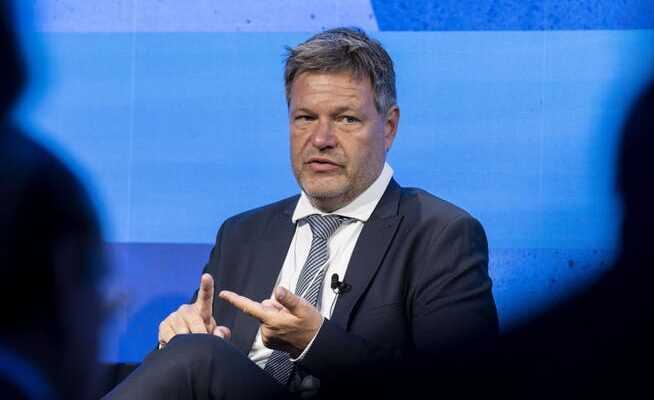Germany’s vice chancellor is calling for more solidarity from countries trying to get a grip on the climate, energy and food crises in an environment of rising inflation. Foreclosure would be the wrong way and would only exacerbate these crises. He warns those who profit from high energy prices: “We don’t pay every price.”
The German Economics Minister Robert Habeck wants to accelerate the expansion of renewable energies even more.
Solidarity is the word that Robert Habeck uses again and again in Davos. Solidarity with Switzerland for gas deliveries. Western world solidarity with Ukraine. Solidarity from the world community when it comes to getting a grip on a climate, food and energy crisis at the same time as inflation has risen sharply. Although Habeck is trying to shift the focus away from Germany to the world community, the crises affect everyone.
For the German Economics Minister there is therefore no contradiction between guaranteeing energy security and saying goodbye to fossil fuels as quickly as possible, as he said during a discussion at the World Economic Forum in Davos. Habeck would like the energy transition to renewable energies to be even faster than before. He hopes that when consumers demand renewable energy, markets and companies will follow suit.
Habeck warns energy producers
Fatih Birol, director of the International Energy Agency (IEA), also wants to believe in that. However, he currently fears the opposite: In view of the sharp rise in oil and gas prices, the greatest danger is that manufacturing companies will take this as an opportunity to continue investing in renewable energies and even more so in fossil fuels. “It could be a welcome excuse for many countries and companies why they prefer to invest in fossil fuels,” fears the IEA director. Habeck explicitly warned oil and gas producers, who could currently be making enormous profits, and asked the public: “We have to agree that we are not paying any price.”
The German Economics Minister was alluding to the idea of forming short-term purchasing cartels among the oil and gas importing countries due to the current exceptional situation. With the bundled market power, so the idea, the producers could be set an upper limit for their price expectations.
Basically, however, Habeck advocates not falling into small states in view of the current supply crises, but rather keeping the markets open. But the rules of the game would have to be reformulated. He advocates reform of the WTO, for multilateralism instead of countless bilateral agreements, for trade that benefits everyone.
Small steps at the WTO meeting in June
“The past two years have shown that the supply of raw materials needs to be more broadly based. The previous approach has maneuvered us into a dependency on Russia and China that can no longer be wanted.” Conversely, globalization has also meant that former developing countries have been able to develop with their own middle class and consumer desires. A return to the previous form of globalization at the expense of poor countries would no longer be possible. Trade must increase the prosperity of the people and also serve the people and not just for profit, said the Economics Minister.
This is also the clear stance of the German government, knowing full well that no breakthrough is to be expected at the upcoming WTO conference in June. “The US and China are very stuck, and without them it will be difficult to reform. But maybe you can take small steps.”
When asked whether he was able to gain allies in Davos for his idea of globalization according to new rules, Habeck said: “My impression is that everyone is happy that clear signals are coming from Germany. That doesn’t mean that everyone automatically sees it the same way.” But he believes that Germany’s political message is well received in a world in which the focus is currently more on isolation than on opening.
